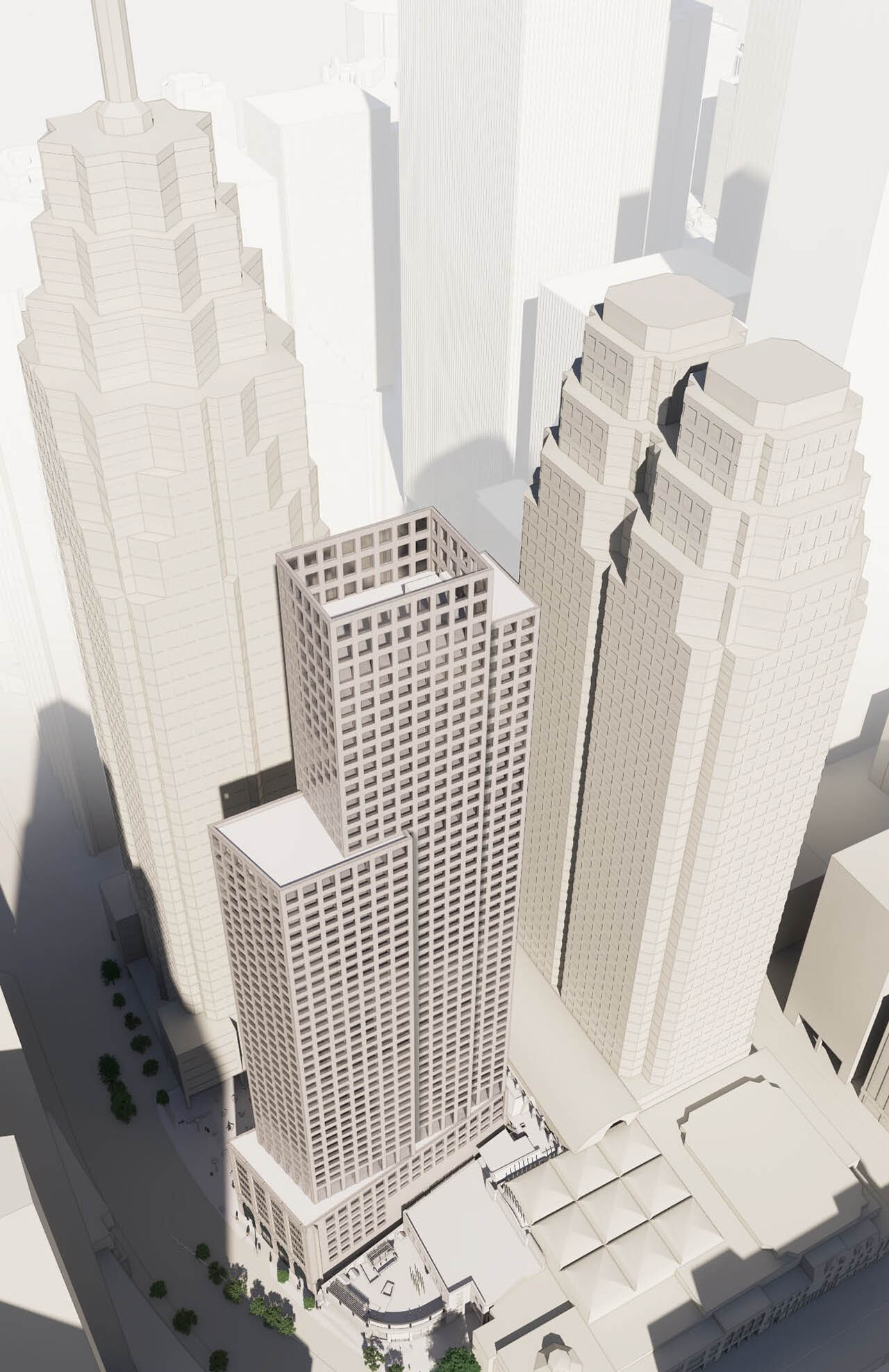AlvinofDiaspar
Moderator
Anemic.
AoD
AoD
Sorry, I meant new proposals. There is so much in the pipeline I'd find it hard to believe that a developer would expect a return on a new office space proposal. I also would be surprised if more than one of the existing proposals goes through. Nobody wants space anymore.
NL, are commercial rents per month or annual?
I think they should pull more of a similar language from the current complex- so that the new building visually merges with the TD Canada Trust Tower.

Not to mention this proposal helps towards solving the issue that's existed even before 2020 where the financial district emptied out outside of business hours and days. By having more mixed-use buildings in the Financial district, it would make it more lively (Thus benefitting the many shops and restaurants that are there outside of business hours) and also make it more convenient for those who work in the district. You'd have people not just working there 9-5 on Monday-Friday, but also living there on a day-to-day basis (Giving the district more of a feel akin to the Entertainment district where there's lots of people out and about at all hours of the day and night, even if it's a bit).My perspective - another example of living in a romanticized past in the hope of returning conditions to a state which is just not going to happen.
This is just one of a number of recent proposals for the redevelopment of commercial buildings into mixed use with substantial residential components plus material office replacement components - even when such as this, the entire existing office structure is being demolished.
First, given the pervasive adoption of work from home, already starting pre-Covid supported by technological advances over the recent years - at this point the entire residential component chould be counted as contributing towards the replacement office requirement.
Secondly, the balance in demand, the ratio of office to residential space requirements has changed, and is not likely to go back, fundamentally there has been an increase in residential requirements in ratio to the amount of office space required to support the corresponding population. This is not even taking into account the effect of the ongoing reduction in average household size )i.e. more residential required for the same population.
I suspect that the prospects of the office replacement component being profitable on its own merits for a developer, are marginal or non-existent. That being the case, the office component is in fact being materially subsidized by the residential portion of the building. The result will be a very counter productive increase in the development costs for the residential units.
In other words, this is a losing situation in two ways - first of all (although not necessarily in this case as the proposed office space would be offsite) the approved density could be used for additional residential units, helping the housing situation, and secondly, the incremental costs loaded onto the residential units to support the replacement office component further hurt affordability.
So given the current market situation, over availability of office space in Toronto, combined with a housing shortage - it would seem to make sense to me that Council, the City's Planning department and developers back off from requiring workplace replacement components within new primarily residential buildings being proposed for existing commercial building locations.
